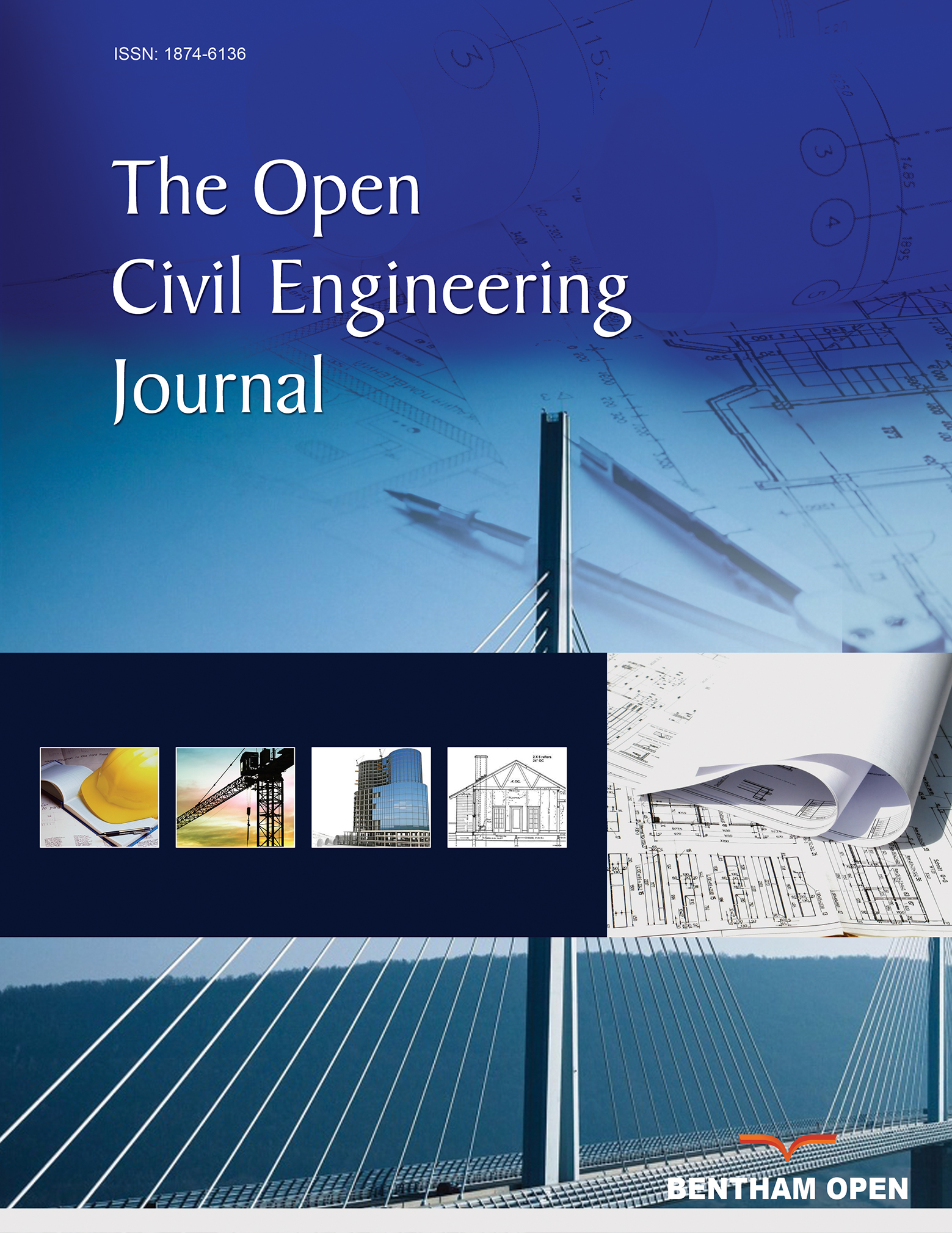All published articles of this journal are available on ScienceDirect.
Evaluation of the Properties of Fiber-Reinforced Pervious Concrete Pavement Incorporating Glass Powder and Kaolin
Abstract
Introduction
Pervious concrete has been significantly helpful in water quality control and preventing surface runoff through easy infiltration and percolation of water. A developing country such as Nigeria is prone to flooding, and promoting pervious concrete will significantly mitigate this problem. However, structural issues are associated with pervious concrete, such as weak bonds and durability concerns due to the infiltration of deleterious materials.
Methods
The study incorporates glass powder, kaolin and sisal fiber to improve the performance of pervious concrete. Glass powder and Kaolin were incorporated as supplementary cementitious materials at 0, 10, and 20% and sisal fiber-reinforced at 0, 1, and 2%. The pervious concrete mixtures at 28 days were subjected to water absorption, permeable voids, and compressive and split tensile strengths.
Results
The results indicate that the fiber-reinforced pervious concrete with glass powder and Kaolin met the strength requirements. However, the strength resulting from incorporating Kaolin is much higher; hence, Kaolin is preferable in times of strength in fiber-reinforced pervious concrete. Nonetheless, an equal 10%-10% combined use of kaolin and glass powder and 1% sisal fiber proves an alternative to obtaining strength values within ACI specification.
Conclusion
These research findings will enhance the performance of pervious concrete, an eco-friendly and responsible approach to managing rainwater.


